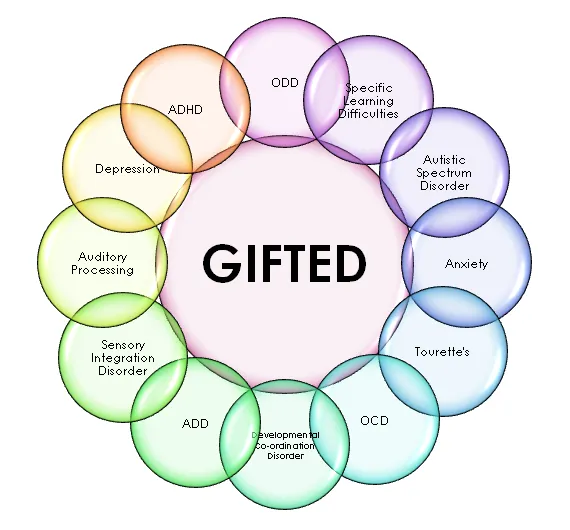
Supporting Twice Exceptional Children: Tips for Parents
Raising a twice exceptional (2e) child—a child who is both gifted and neurodivergent—can be an incredible journey filled with unique challenges and rewarding moments.
On the last episode of Every Brain is Different Meghan Bonde, a neurodivergent entrepreneur and advocate, shared valuable insights on how parents can best support their 2e kids.
Meghan shared practical strategies to help your child thrive in a world that often isn’t designed for them.
Below are some of her top suggestions:
1. Create the Right Environment
Many children struggle not because there’s something wrong with them, but because the systems around them aren’t built for how they’re wired. Whether at school or at home, simple changes can make a big difference.
When you find the right environment for your child, you can advocate for changes that help your child feel understood and supported in all settings. Sometimes it’s the environment that needs adjusting, not your child.
2. Help Them Find Their Tribe
It’s crucial for neurodivergent children to connect with others who share similar traits. Being part of a community with other neurodivergent kids, whether online or in person, can significantly improve their social experience.
The social difficulties many 2e kids face often stem from being in environments where they don’t quite “fit.” When they’re with kids who think and communicate like they do, those struggles often disappear.
3. Embrace Their Differences
One of the biggest mistakes parents can make is not talking to their children about their neurodivergence. Kids already know they’re different.
Giving them the language and understanding to describe why they feel that way helps build their confidence and avoid internalizing feelings of inadequacy. Explain their strengths and challenges in a way that celebrates their uniqueness.
4. Focus on Their Strengths
Twice exceptional kids often have incredible strengths in areas like math, reading, art, or creative problem-solving. Identify these strengths and nurture them.
A child who excels in one area but struggles in others will benefit from spending time doing what they love and are naturally good at. Encouraging their gifts can boost self-esteem and motivation.
5. Support Their Self-Regulation
Children learn and grow best when they feel safe, supported, and secure.
If your child is dysregulated—whether due to anxiety, sensory overload, or social pressures—it’s harder for them to focus on their strengths. Prioritize helping your child feel calm and grounded before pushing them to tackle new challenges.
6. Design Flexible Routines
Not all kids thrive under strict, one-size-fits-all routines. For many neurodivergent children, a flexible, personalized routine works better.
Give them blocks of time to deep dive into subjects they’re passionate about, and build in sensory breaks or movement when needed. For example, Meghan blocks out time for learning while on a walk, turning movement into part of her workday.
7. Encourage Self-Advocacy
Teaching your child how to advocate for their needs is one of the most important skills they can learn. Whether it’s asking for sensory-friendly spaces, requesting noise-cancelling headphones, or explaining their learning preferences, children who clearly communicate their needs find more success in environments that might not be naturally suited to them.
Supporting your 2e child is about more than just helping them fit into the mold of the neurotypical world. It’s about celebrating their strengths, fostering an environment where they can thrive, and empowering them to advocate for themselves. Every child is different, and by embracing that difference, you can help your child succeed on their own terms.
Listen to episode 61 of the Every Brain is Different podcast to hear Meghan’s entire interview.
